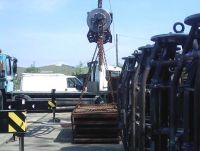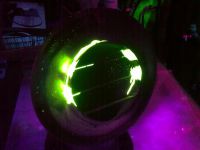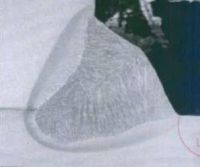Weld Testing
Types of Weld TestingThe majority of weld testing and inspection can be separated into two categories: Destructive Testing, and Non-Destructive Testing. We will be taking a look at some of the more commonly used methods. One method that could fall into either category is load testing |
 Load Testing Load Testing
|
|---|
Non-Destructive TestingThere are numerous methods of NDT, some are reasonably simple, but others require specialist operators and expensive equipment, such as X-ray testing There are also more simple methods such as dye penetrant testing, that can be carried out with minimal equipment, and in most workshops. More advanced systems use Florescent penetrants |
 Florescent Penetrant]] Florescent Penetrant]]
|
|---|
Destructive testingDestructive testing is usually a cheaper method of inspection. It lends its self to mass produced parts, where sacrificing one or two components for testing is acceptable. It is quite useful for setting up welding equipment. It is also a good learning tool during training courses, as it allows the students to do lots of testing at minimal cost, and is often easier to understand than some of the NDT methods. The two most common tests used in training are Macro Etch testing, and Root and Face bend testing. Another easy test to carry out is a Nick break test. |
 Macro Etch Testing Macro Etch Testing
|
|---|